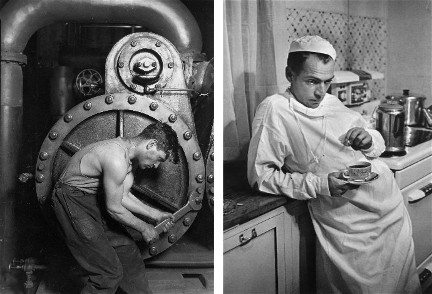Culture & Media
Do Wages Always Match Skills?

“It’s not brain surgery.”
My cousin’s husband, Keith, says this to me a lot. He says it whenever he’s giving me complicated instructions on how to tackle some grueling home-repair process, usually one involving multiple steps and materials and equipment I’ve never heard of. And at that point I always picture myself standing over some inert patient on a gurney, bone saw in hand, wondering if I should go ahead and cut into their skull or wait for a trained professional, because as far as I’m concerned what he’s describing might as well be brain surgery, it sounds that difficult.
But for Keith it’s really not difficult. He’s done this kind of thing for years. He worked in residential construction for more than a decade and has remodeled every house he’s ever owned, generally more than once. He takes his own expertise and know-how completely for granted, and what boggles my mind is that he doesn’t even see it as expertise. To him this is stuff anyone can do.
And of course I could learn to do it. But I could probably learn to do brain surgery too, given enough time, and I’m pretty sure brain surgeons don’t run around telling people “It’s not home improvement work.” Somehow one type of task got tagged in peoples’ minds as the province of the truly brilliant, deserving of accolades and fantastic salaries, while the other isn’t seen as requiring any kind of intelligence or training at all.
The Bureau of Labor Statistics says that residential construction – now, in the United States, almost all of it non-union work– pays about $19 an hour, or around $40,000 a year. That’s an estimate; in reality the pay might be a lot less. By contrast, the average surgeon gets paid around $225,000 a year. Salaries for specialists could be even higher. Brain surgery certainly takes longer to train for, and must be more difficult, but is it really worth that much more?
Some kinds of professionals are seen as important – phenomenally important – while the skills and knowledge and experience that go into blue collar labor are seen as less and less worthwhile. Looking at the work Keith has done over the years it seems to me like those skills are actually worth a whole lot (I mean, the man makes homes, for goodness sake), but they aren’t compensated that way. And I think that’s part of the reason he doesn’t realize how great and valuable his skills are.
(“You don’t need roofers,” he told me once. “Just get your friends to come over and put a new roof on.” I didn’t tell him that all my middle-class, mostly professional friends in L.A. don’t even paint their own toenails. They’d probably be more comfortable taking their best shot at performing a hemicraniectomy than re-roofing a house.)
A few months ago I hired a friend as a handyman. He easily fixed several problems that had baffled me for months if not years, and of course I commented on how easy it all seemed to be for him.
“Yeah well,” he said. “It’s not rocket science.”
-

 Latest NewsApril 8, 2024
Latest NewsApril 8, 2024Report: Banks Should Set Stricter Climate Goals for Agriculture Clients
-

 Latest NewsApril 22, 2024
Latest NewsApril 22, 2024Oil Companies Must Set Aside More Money to Plug Wells, a New Rule Says. But It Won’t Be Enough.
-

 Striking BackMarch 25, 2024
Striking BackMarch 25, 2024Unionizing Planned Parenthood
-

 California UncoveredApril 9, 2024
California UncoveredApril 9, 2024700,000 Undocumented Californians Recently Became Eligible for Medi-Cal. Many May Be Afraid to Sign Up.
-

 Feet to the FireApril 22, 2024
Feet to the FireApril 22, 2024Regional U.S. Banks Sharply Expand Lending to Oil and Gas Projects
-

 Class WarMarch 26, 2024
Class WarMarch 26, 2024‘They Don’t Want to Teach Black History’
-

 Latest NewsApril 10, 2024
Latest NewsApril 10, 2024The Transatlantic Battle to Stop Methane Gas Exports From South Texas
-

 Latest NewsApril 23, 2024
Latest NewsApril 23, 2024A Whole-Person Approach to Combating Homelessness




















